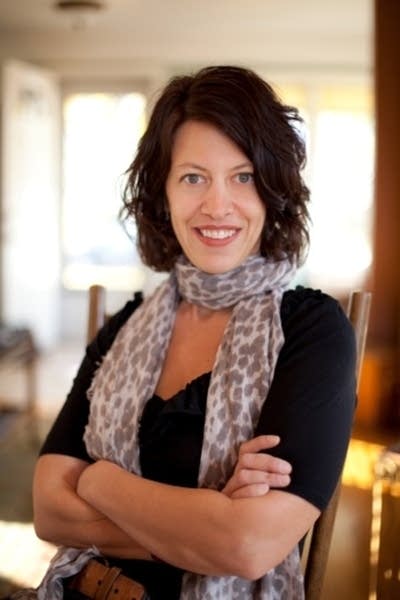Rural gays and lesbians still long for affirmation

By Melanie Hoffert
Melanie Hoffert, Minneapolis, works for Teach For America and is the author of the forthcoming memoir, "Prairie Silence: A Rural Expatriate's Journey to Reconcile Love, Home, and Faith."
On Election Day, many of us huddled together in anticipation of the Minnesota Marriage Amendment results. And while we were ecstatic to see the amendment defeated, for some of us, there was something beyond the question of marriage equity at stake.
Our minds were far from the city. Our thoughts traveled past the suburbs, down empty highways, onto gravel roads, over fields, and into the small towns and rural lands of our childhoods. We wondered about farmers' conversations, and people talking at cafes, and the discussions at potlucks in the Lutheran and Catholic churches.
Create a More Connected Minnesota
MPR News is your trusted resource for the news you need. With your support, MPR News brings accessible, courageous journalism and authentic conversation to everyone - free of paywalls and barriers. Your gift makes a difference.
Up to the vote, we couldn't shake the faces of the people who had changed our diapers, who had given us our first communions, who had watched our every basketball game, who had sat through our squeaky band performances, who had came to our proms and homecomings, and who had cheered us on as we went into the larger world.
We wanted to know how the people with whom we spent the beginning of our lives voted. We wanted to know whether they cared.
For many of us who are gay, the Twin Cities is our home of refuge. We — rural expatriates from farms and small towns in Minnesota, and the borderland states of North Dakota and Wisconsin — came here seeking people with similar stories and an escape from our silences. And while we have made new homes, created new communities and matured into adulthood, we are forever connected to the people of our childhood.
And, so, while we took great comfort in the orange "Vote No" signs that stretched for blocks, and rested easy in the supportive voices of our neighbors, and ultimately sighed with relief when the amendment was defeated, we will only find full relief when those from our homelands come to our sides and finally say, "We support you."
The world has changed since I left my home state of North Dakota. Today people hardly blink when they find out I happen to be a lesbian; in fact, people are much more shocked to learn I grew up in the middle of nowhere. "You're from where?" they'll ask, and I'll immediately explain how breathtaking the prairie is and how I am from a world where neighbors come to each other's side in ways city people can't imagine.
"Well — why didn't you stay?" some will ask.
"Because I can't," I will say. And with these words, my heart always breaks.
The vote is over and a large victory has been won. But, unfortunately, the breakdown of the vote by precinct tells us that the extended communities of people who raised us, who loved us, have not yet fully welcomed us home.
